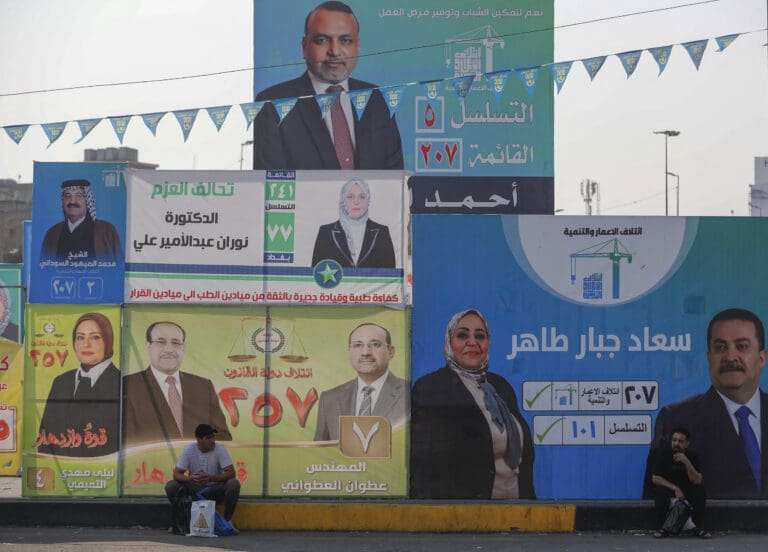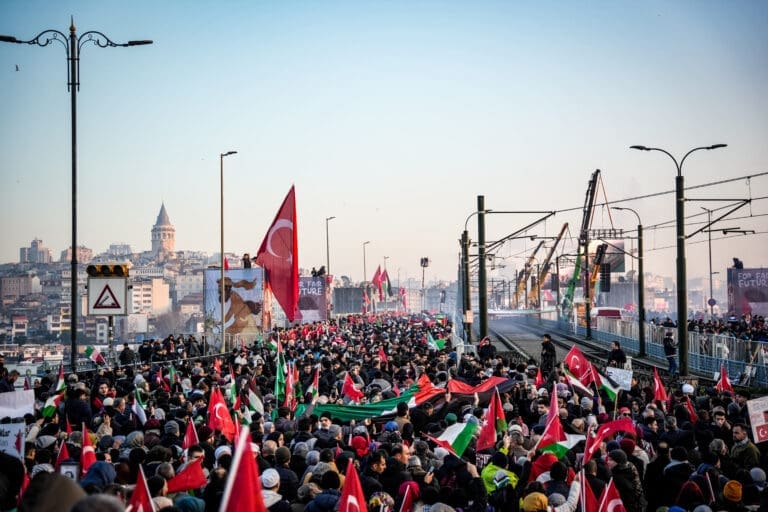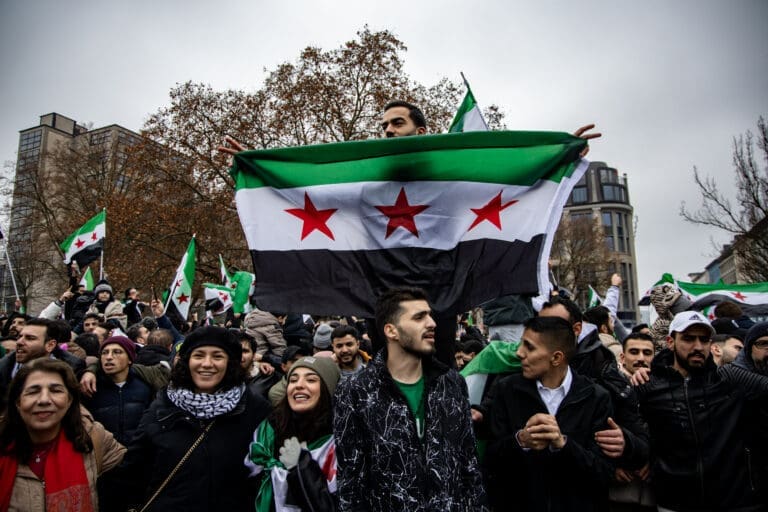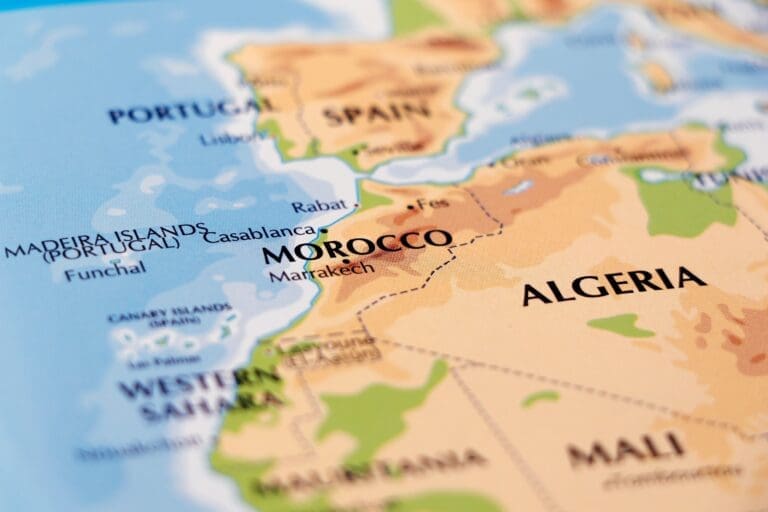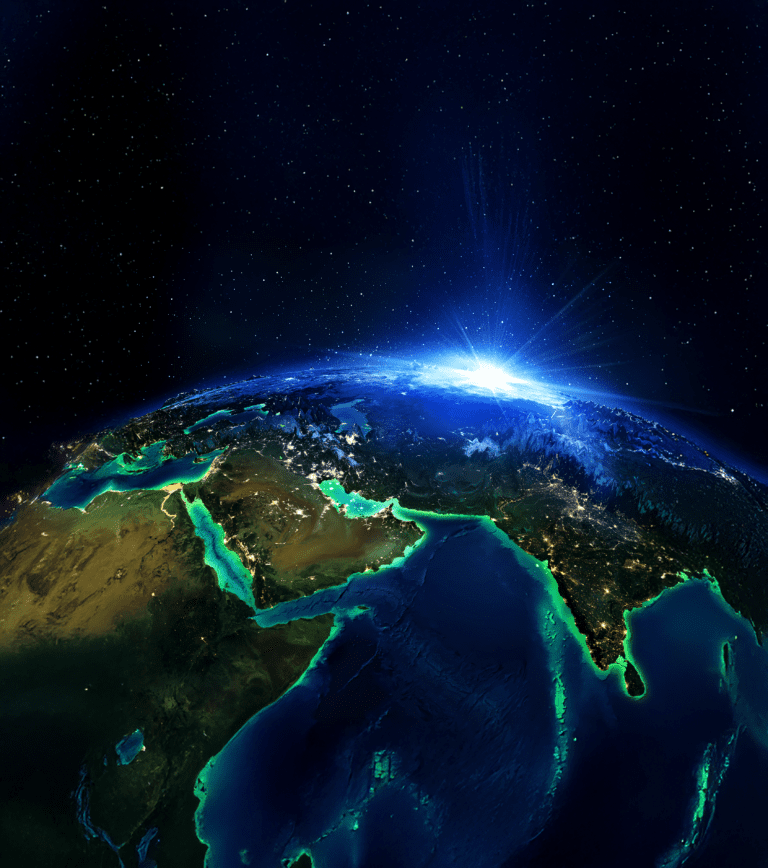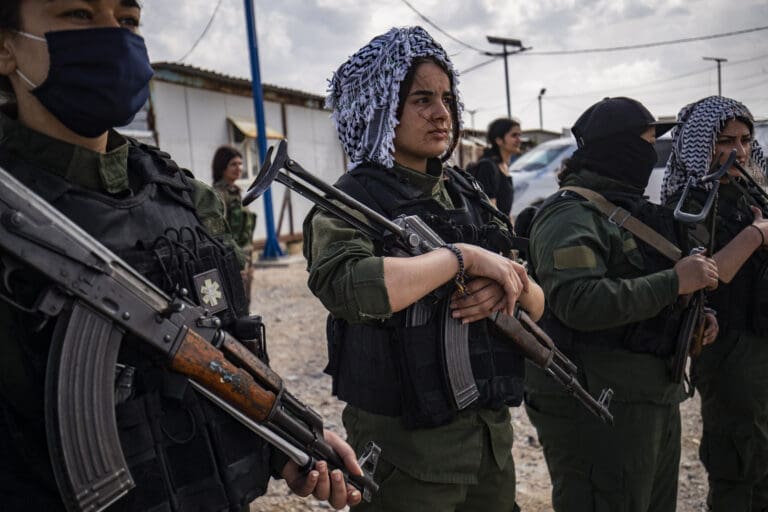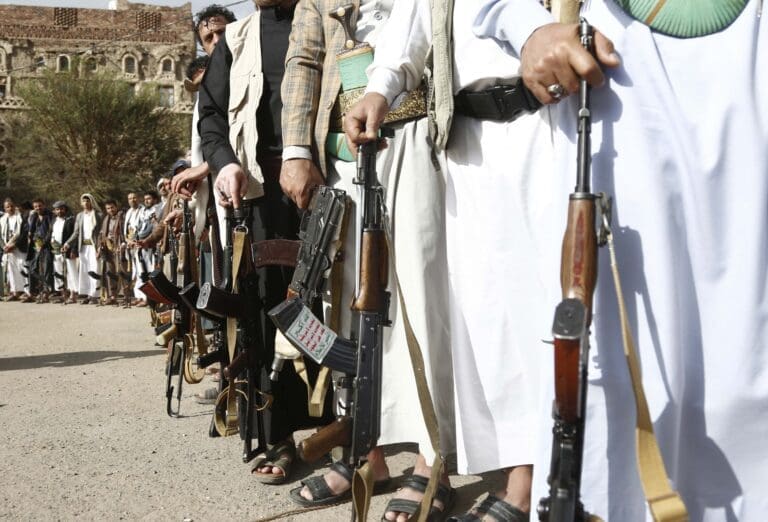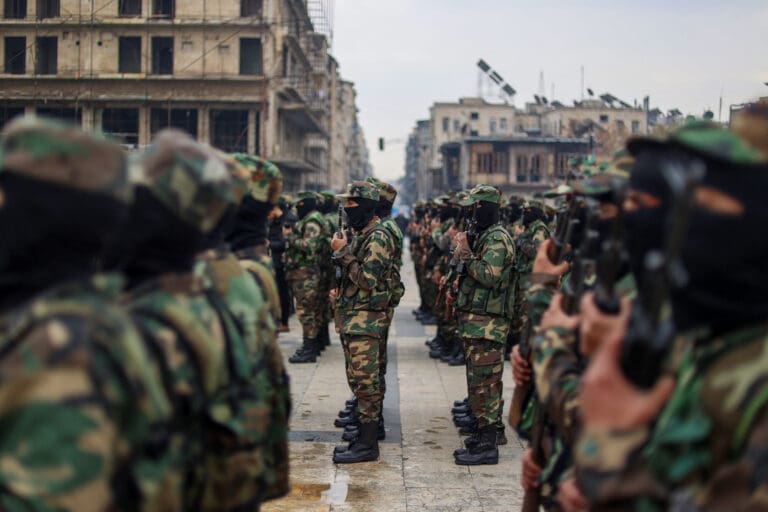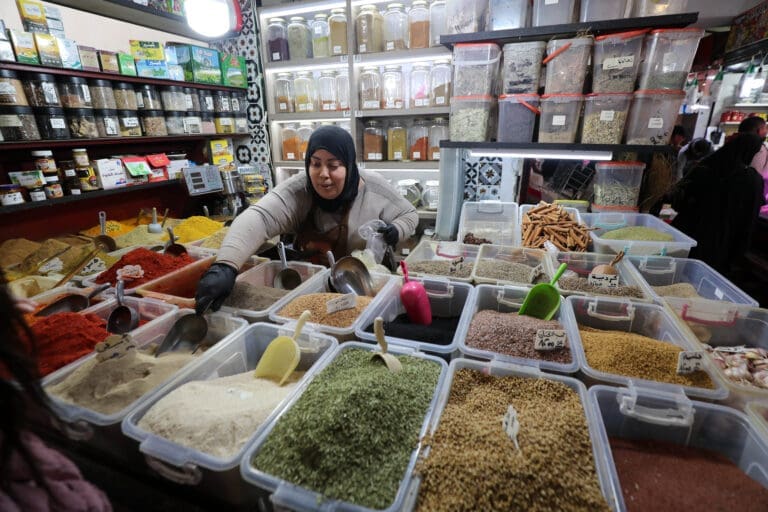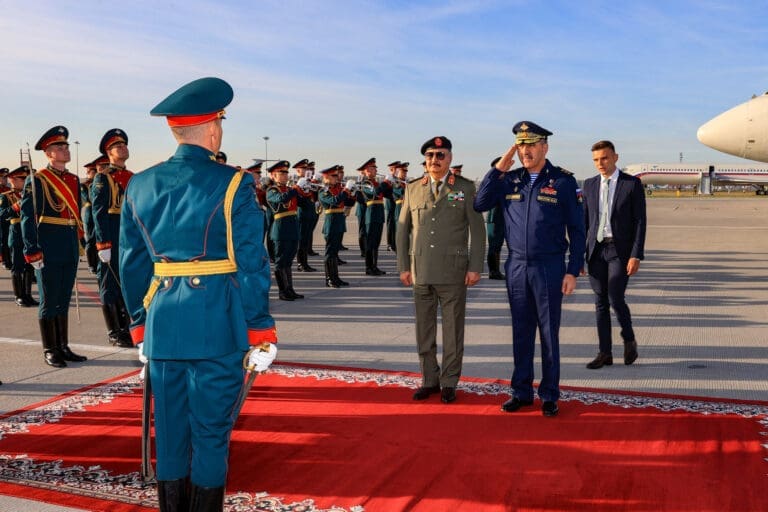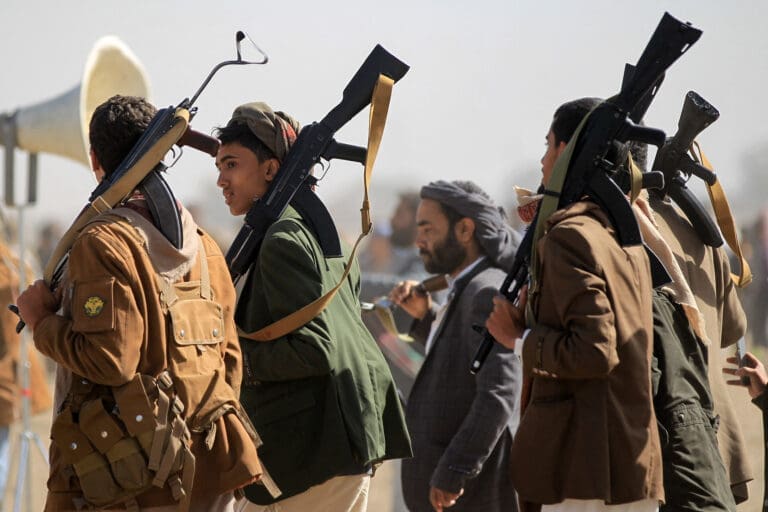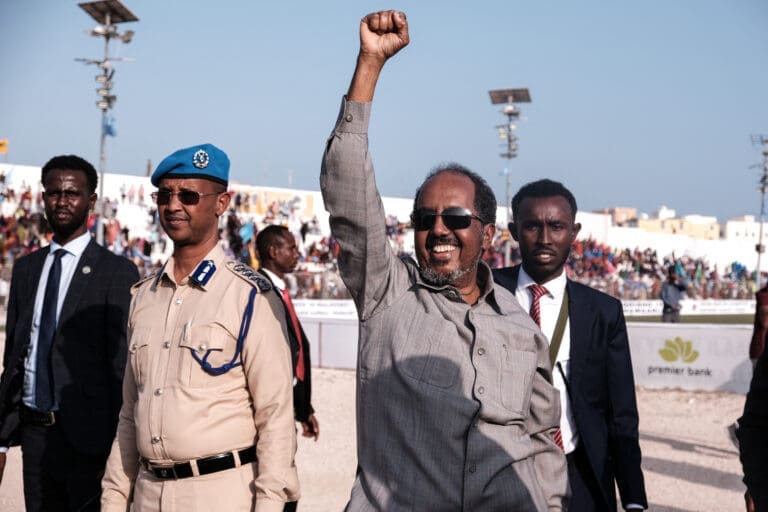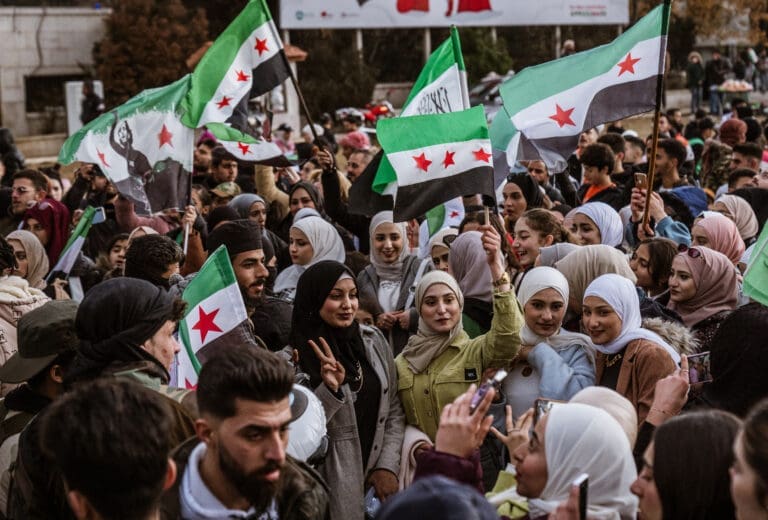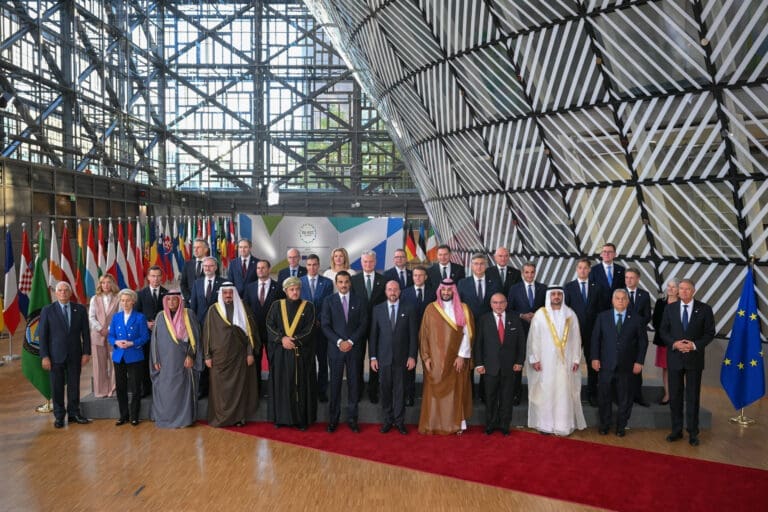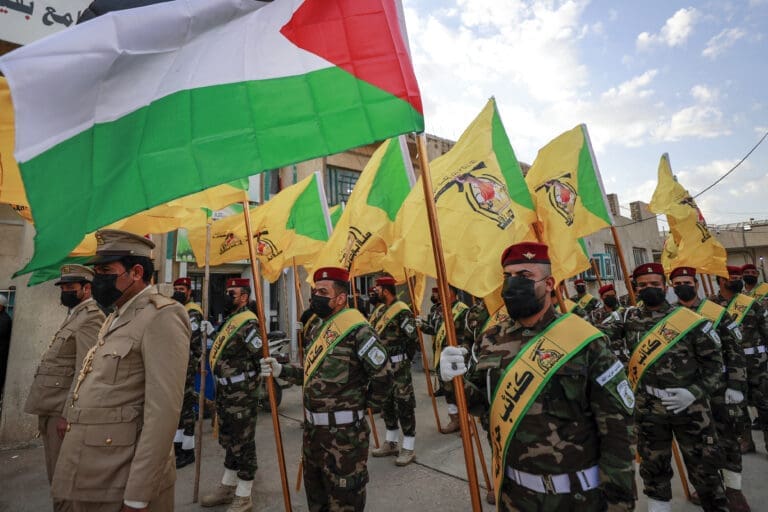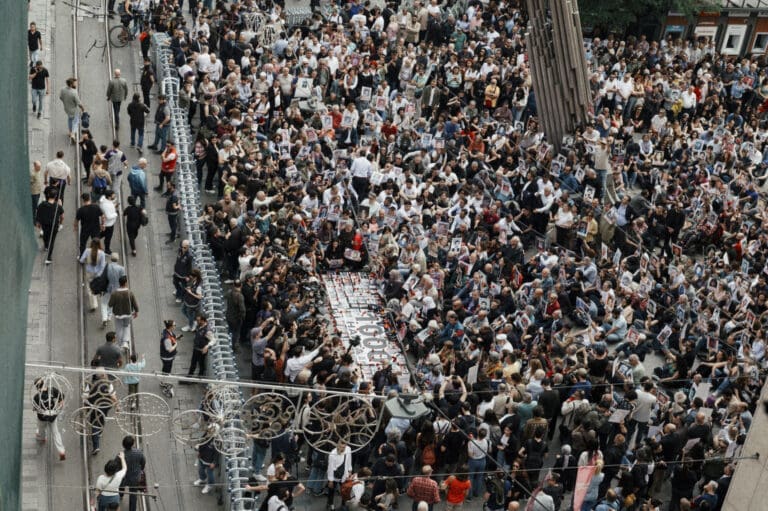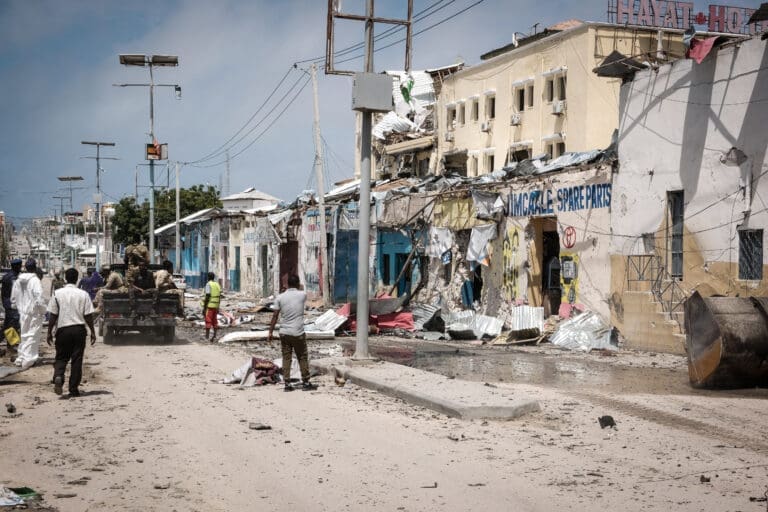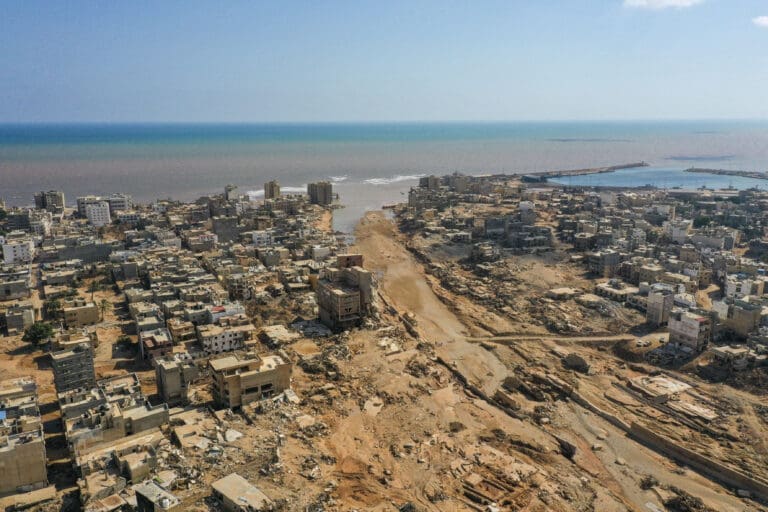
February 1, 2026
Syria’s Patchwork DDR: Holding a Transition Together with Loose Threads
Post-Assad Syria has pursued improvised DDR-style security measures. This policy note argues that only a nationally anchored DDR strategy can sustain stabilization
learn more

November 9, 2025
Iraq Next Chapter: War or Consensus?
Iraq’s 2025 parliamentary elections represent a pivotal moment for the country’s stability and regional role. With the Popular Mobilization Forces (PMF) retaining deep political and military influence, and reformist and Sadrist factions seeking to challenge Iran-aligned dominance, the vote will determine whether Iraq can balance between Washington and Tehran or slide into renewed conflict. The outcome will shape not only Iraq’s governance but the wider Middle Eastern geopolitical order.
learn more

October 6, 2025
Türkiye’s Youth Perspectives on the War on Gaza
Abstract This analysis paper examines how young people in Türkiye, who are digitally connected, understand Israel’s war on Gaza. It explores the relationship between their interpretations and their political beliefs, as well as their views on international politics and Türkiye’s foreign policy. This study analyzes nine focus groups (n=51) from various cohorts, including religious-conservative, secular,… Continue reading Conflict and Security Program
learn more

October 2, 2025
The Distant Anchor: How Diasporas Can Stabilize Fragile States
Dramatic shifts in the geopolitical landscape have placed Syria and Lebanon at a crossroads. As regional and international actors recalibrate their engagement in the Levant, the dynamics of peacebuilding and state recovery are shifting rapidly. Gulf countries, particularly Saudi Arabia and Qatar, are emerging as key players in war-torn Syria’s reconstruction, moving from proxy politics toward modes of influence driven by development.
learn more

September 4, 2025
Weaponized Words: How to De-Escalate the Algerian-Moroccan Conflict
Relations between Algeria and Morocco are passing through a critical phase of instability, fueled by deep-seated distrust, historical grievances, skewed perceptions of escalation, a rapid arms race, and competing regional ambitions. As a result, both are increasingly relying on military deterrence over diplomacy. This situation is further exacerbated by their antagonistic views on numerous issues, particularly the Western Sahara dispute
learn more

August 24, 2025
Toward a New Discourse of Global Connectivity: The Gulf’s Ambitions in Strategic Corridors and Partnerships
This report examines the rising strategic significance of economic corridors, with a particular focus on the Gulf region’s growing role in shaping their development.
learn more

August 20, 2025
The Litmus Test: Post-Assad Syria and the SDF
The collapse of the Bashar al-Assad regime in December 2024 marked a watershed moment for Syria and the wider Middle East after almost a decade of civil war. Throughout the conflict, Syria constituted a staging ground for geopolitical rivalries, spawning proxy conflicts and involving great powers, including the United States and Russia. Among the most consequential results was the emergence of a Kurdish-dominated enclave in northeastern Syria
learn more

July 27, 2025
Yemen’s Quagmire: Why Isn’t U.S. Might Winning?
The Red Sea has been at the center of a radical shift in the global maritime security landscape since October 2023, when Yemen’s Houthis (also known as Ansar Allah) launched a campaign of repeated attacks on commercial and military vessels in one of the world’s most important waterways. These attacks, which the Houthis announced were… Continue reading Conflict and Security Program
learn more

June 25, 2025
Syria’s Unruly Guns: Building a Unified Army in a Fractured State
More than 13 years of armed conflict have left Syria a fractured patchwork of isolated regions controlled by rival factions. Yet the dramatic collapse of the Assad regime in December 2024 opened a rare window of opportunity to reunify the state under a single authority.
learn more

June 22, 2025
From Aleppo to Algiers: Enterprising Syrians Bring Opportunity to Algeria
In the wake of the Syrian conflict, Algeria has emerged as an unexpected host for tens of thousands of Syrian nationals. While it has not positioned itself as a major refugee hub, the country today is home to an estimated 50,000 Syrians, a significant popula-tion that has shifted from viewing Algeria as a transit point to embracing it as a place of long-term residence.
learn more

May 7, 2025
Rivalry and Cooperation: Russia and Türkiye Navigate Libya’s Geopolitical Labyrinth
Russia and Türkiye have emerged as simultaneous geopolitical rivals and partners in conflicts across the Middle East, North Africa, the Caucasus, and Europe. Despite being on opposing sides in Syria, Libya, Nagorno-Karabakh and Ukraine, Moscow and Ankara have managed to maintain cooperation and effectively navigate these conflicts to their mutual advantage.
learn more

April 16, 2025
The Wages of War: Yemeni Gunmen for Hire
Over a decade of relentless conflict, Yemen's longest modern war, has fundamentally shattered the country's social, economic, and political foundations. Famine, extreme poverty, and economic collapse have pushed Yemenis to make grim choices to survive, including joining smuggling networks, working illegally in neighboring countries, or signing up to fight for a wage in conflicts well beyond Yemen’s borders.
learn more

March 20, 2025
Can Somalia’s Third Republic Be Saved?
Somalia’s political development has undergone significant transformations, characterized by periods of civilian governance (First Republic), military dictatorship (Second Republic), and a transitional or post-transition state-building era (Third Republic). This policy note calls for preserving the Third Republic and preventing the emergence of parallel administrations and further fragmentation within the country
learn more

March 11, 2025
Syria Post-Assad: Scenarios And Regional Dynamics
The "Syria Post-Assad: Scenarios and Regional Dynamics” two-day workshop brought together a diverse group of experts, academics, and policymakers from the Middle East and North Africa (MENA) region, the United States, Europe, and Russia.
learn more

February 16, 2025
Lost in the Mix: The EU and the Complexities of an Evolving GCC-Asia Relationship
This issue brief analyzes the EU's challenges in maintaining its influence within the GCC amidst a burgeoning GCC-Asia relationship and China's rising prominence. It argues that the EU's complex relationship with the GCC, entanglement with China, and internal struggles hinder its ability to compete effectively.
learn more

January 16, 2025
The Iraqi Prime Minister’s Tricky Balancing Act
Iraq constitutes a key arena in the region-wide conflict that has emerged from the war in Gaza, and Iran-backed militias in the country constitute a vital component of the “Axis of Resistance.”
learn more

November 26, 2024
The Kurdish Issue Revisited: Türkiye’s Complex Road to Peace
Devlet Bahçeli, leader of the Nationalist Movement Party (MHP), a political party deeply rooted in Turkish nationalism, recently made a groundbreaking call to invite Abdullah Öcalan, the imprisoned leader of the Kurdistan Workers’ Party (PKK), to address Türkiye’s parliament. This move marks a significant shift in the country’s approach to the 40-year conflict. On October 22, 2024, Bahçeli urged parliament to allow Öcalan to “unilaterally declare that terrorism is over and his organization dissolved.”
learn more

October 31, 2024
Engaging Al-Shabaab in Somalia: Military Failures and the Merits of Dialogue
The Federal Government of Somalia (FGS) and its international partners have been fighting against Al-Shabaab for the last 17 years. Despite Mogadishu sharply escalating its efforts since 2022, it has failed to defeat the group. Al-Shabaab, for its part, seeks a total military victory against Somali authorities, but this too has failed.
learn more

August 22, 2024
Division and Disaster: Libya’s Political Fragmentation and Response to the Derna Flood
A devastating flood hit the Libyan city of Derna on September 10 and 11, 2023. It resulted from the collapse of two dams after heavy rainfall pounded the eastern coastline of Libya due to Storm Daniel’s passage through the Mediterranean.
learn more



